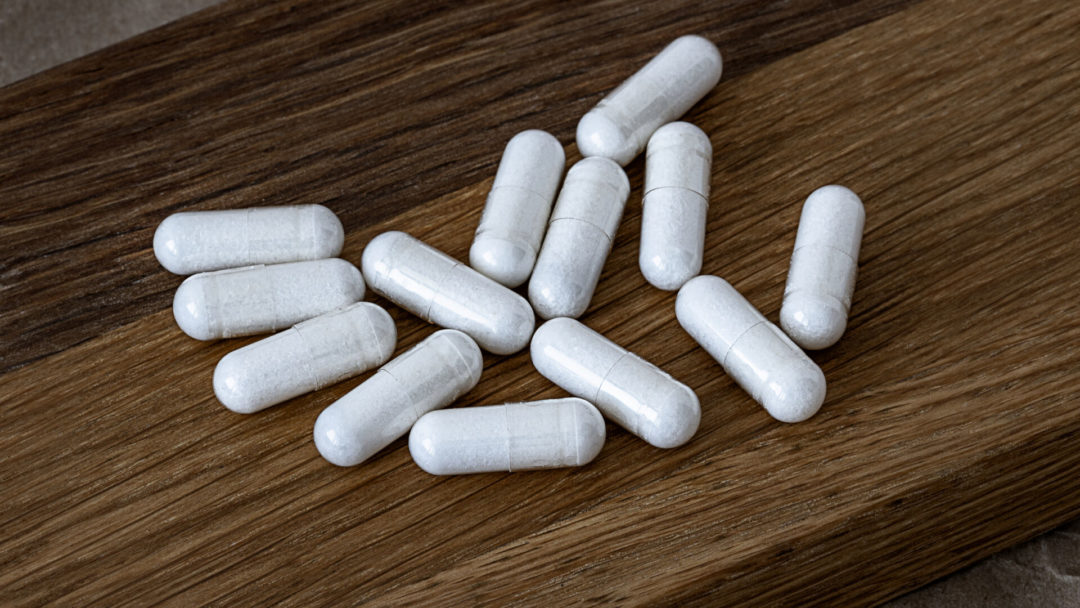The American Health Products Association (AHPA) submitted comments, focusing on identifying NAC-containing products sold pre-DSHEA. The association noted that AHPA has previously submitted comments asserting that FDA is misapplying the prior-drug restriction to NAC, and that this provision can’t be applied retroactively from the date of DSHEA’s enactment.
AHPA provided evidence of two suppliers:
- Pharmline Inc. (Florida, NY) in a sales brochure dated August 1991 identified its product line of “fine nutritional products” to include “N Acetyl-L- Cysteine” under “Amino Acids/Derivatives”
- Island Organics Inc. (Dunellen, NJ) in a catalog provided to a potential U.S. buyer on May 2, 1994, included “N-Acetyl Cysteine” under “Vitamins and Nutritional Supplements”
- At least as early as May 1993 (and likely as early as November 1991 according to U.S. Patent and Trademark Office records), Makers of KAL (Woodland Hills, CA) marketed a product identified by the brand “CELL DEFENSE” and recorded by FDA as containing NAC, as shown in the agency’s May 1993 report entitled “Enforcement Report: Statement of the enforcement priorities and practices of the Food and Drug Administration under section 409 of the Federal Food, Drug, and Cosmetic Act with respect to dietary supplements of vitamins, minerals, herbs, and other similar substances."
- As early as September 1993, NOW Foods Inc. (Glendale Heights, IL) marketed a product identified as “NAC N-acetyl cysteine with supporting nutrients, 100 capsules” and consisting of 600 mg NAC and other ingredients, as shown in a sell sheet distributed in September 1993. The contemporaneous marketing of other products containing or consisting of NAC can be inferred from the following statement on the sell sheet: “Compare our 600 mg with smaller size or lower potency competitors.”
- As early as January 1994, NF Formulas Inc. (Wilsonville, OR) marketed a product identified under the heading “Amino Acid Formulas” as “N.A.C.” and described as “600 mg N-Acetyl-L-Cysteine” in a 60 capsules size, as shown in a price list and catalog supplement published January 15, 1994.
- As early as May 1994, Country Life Inc. (Hayward, CA) marketed a product identified as “N-acetyl-cysteine” capsules, 750 mg, as shown in a certificate of analysis and bulk label provided in May 1994 by contract manufacturer VitaTech International Inc.
All documents were attached, along with the note from AHPA that the statutory definition of “dietary supplement” did not exist until October 1994, but “it is nonetheless obvious that each of the above examples record marketing of products that the FDCA would classify as ‘dietary supplements’ when DSHEA amended the FDCA by, among other details, adding a statutory definition for the “dietary supplement” class of goods at 21 U.S.C. § 321(ff) (FDCA § 201(ff)).”
Related: CRN Disappointed With FDA Tentative Response to NAC Citizen Petition NPA Sues FDA: Asks Courts to “Block Unlawful Action in NAC Situation” AHPA to FDA: Clarify that NAC is a Lawful Dietary Ingredient
CRN alsosubmitted comments. It reiterated the issues it raised in its January 4, 2022 letter to the agency,reporting on which can be found here. It then addressed the issues raised in FDA’s tentative response, noting that, first of all, NAC is clearly a grandfathered ingredient under DSHEA; industry has provided this evidence in the form of mail order catalogs and sales brochures from before DSHEA, which, CRN notes, is the “exact type of documentation that FDA references as being relevant to demonstrating grandfathered status in its 2016 draft guidance on new dietary ingredient notifications.”CRN also countered FDA’s safety concerns, noting that NAC has been in use for decades and that FDA had access in that time to its own Adverse Event Reporting System, to manufacturing facility inspections, and other tools, as well as data from publicly available research studies conducted on NAC or NAC-containing formulations. CRN pointed to data provided by Pure Encapsulations, a brand marketed by Nestlé Health Science, which includes nine years of adverse event data for the company’s supplement containing NAC. From 2013 to the present day, the adverse event rate per unit sold of NAC-containing products was only 0.002%, and those adverse events were mild and resolved on their own. Sevo Nutraceuticals reported fewer than 10 adverse events for approximately 500,000 unites sold.
CRN reiterated its request that FDA to reverse its current plan to review the CRN and NPA citizen petitions concurrently, and further requested a substantive response addressing CRN’s legal concerns within 30 days. The letter concludes: “By committing to a quick response on CRN’s legal challenge, FDA would provide a timely resolution of this issue that CRN and numerous other stakeholders have requested.”
In a press release on the topic, Megan Olsen, CRN’s VP and Associate General Counsel, commented: “The agency’s continued failure to address the singular legal issue on the table is inexplicable. Their refusal to act is causing harm to consumers and businesses.”









